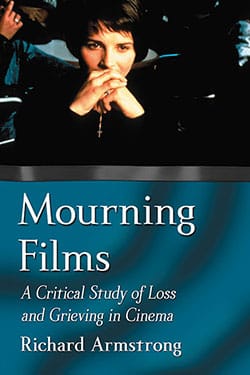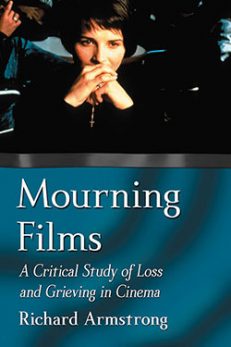Mourning Films
A Critical Study of Loss and Grieving in Cinema
$29.95
In stock
About the Book
The first in-depth study of its subject, this book seeks to account for a type of modernist film that revolves around bereavement. Identifying the roots of the genre in classical melodrama and horror cinema, and tracing perennial themes and aesthetic devices through to the European and American “intellectual melodramas” of the postwar decades, the book provides a taxonomy of characteristics.
In the course of detailed case studies, the book deploys the film theory of Gilles Deleuze and Daniel Frampton while making use of Freudian psychoanalysis and present-day grief counseling theory. In making its case for the new genre, the book reflects upon the ways in which the very notion of genre has, in the post-classical period, responded to changing exhibition patterns, the rise of domestic spectatorship and the proliferation of Web-based film literature.
About the Author(s)
Bibliographic Details
Richard Armstrong
Format: softcover (6 x 9)
Pages: 220
Bibliographic Info: 18 photos, bibliography, index
Copyright Date: 2012
pISBN: 978-0-7864-6699-3
eISBN: 978-0-7864-9314-2
Imprint: McFarland
Table of Contents
Preface 1
Introduction 7
Chapter 1. Manifestation 37
Chapter 2. Realization 67
Chapter 3. Acceptance 108
Chapter 4. Release 155
Conclusion 193
Bibliography 197
Index 205
Book Reviews & Awards
• “This is work of very high quality indeed. It makes an important and original contribution to the discipline of film studies as well as to wider, psychological, approaches to cultural texts. Armstrong’s knowledge and understanding of film history and theory, and his remarkable skills in film analysis and interpretation, too, shine out on every page of this book. It was a pleasure, albeit often a poignant one, to read it.”—Catherine Grant, senior lecturer in Film Studies, School of Media, Film and Music, University of Sussex, United Kingdom
• “This lyrical, elegant book takes us into the heartland of a cinema of mourning. Richard Armstrong writes with feeling and grace about the capacity of the moving image to make grief visible.”—Emma Wilson, professor, Cambridge University






